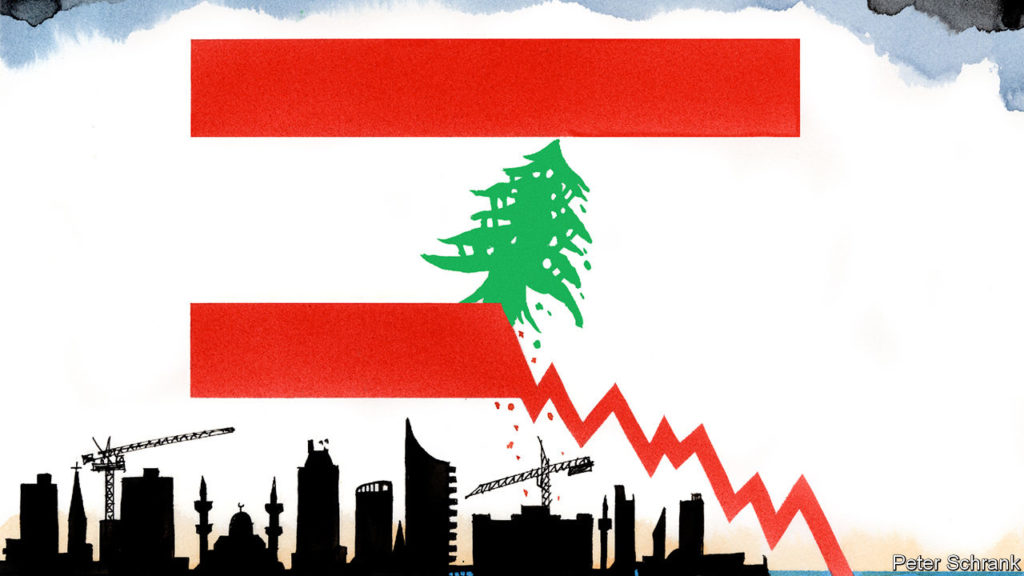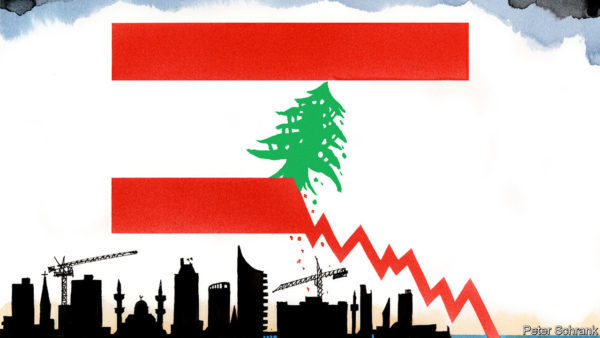By Bassem Mroue, Associated Press

The International Monetary Fund projected Tuesday that Lebanon’s economy will shrink 12% in 2020 amid the country’s worst economic and financial crisis in decades.
The announcement came as the local currency hit its highest pound-to-dollar exchange rate ever on the parallel market.
Lebanon has suffered in recent years from a lack of economic growth, high unemployment and a drop in hard currency inflows from abroad. But the financial crisis erupted after nationwide protests over widespread corruption and decades of mismanagement by the ruling political class engulfed the country in October.
A lockdown aimed at curbing the coronavirus pandemic has worsened Lebanon’s economic and financial conditions. Many businesses have been closed for the past month to limit the spread of the virus that has infected more than 640 people and killed 20 in the tiny Mediterranean country.
The IMF said in its forecast Tuesday that because of the pandemic the world economy in 2020 will suffer its worst year since the Great Depression of the 1930s. The IMF said it expects the global economy to shrink 3% this year.
The IMF projected Lebanon’s crumbling economy will shrink 12% in 2020 compared to a 6.5% contraction the year before.
Last month, Lebanon defaulted for the first time ever on a payment on its massive debt amid ongoing popular unrest. Lebanon’s debt reached $90 billion or 170% of GDP, making it one of the highest in the world.
On Tuesday, exchange shops were selling $1 U.S. dollar for 3,000 pounds, the highest level the local currency has ever reached on the parallel market. The official price remains 1,507 pounds to the dollar.
The rise comes amid a shortage of hard currency in the market and as banks continue already months-old capital control measures limiting withdrawals in foreign currencies.
The IMF report comes a week after a draft government plan leaked by officials on how to deal with the severe economic and financial crisis included restructuring the country’s massive debt and reforming local banks and the central bank.
The leaked draft plan reportedly includes a reference to imposing fees on banks’ “large depositors” — people who deposit between $100,000 and $1 million or more — to pay part of the state’s debt. That led to an outcry from religious and political leaders who warned that those depositors should not have to pay the price for years of widespread corruption and mismanagement.
(Associated Press)


Leave a Reply
You must be logged in to post a comment.